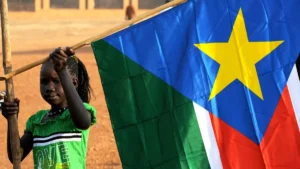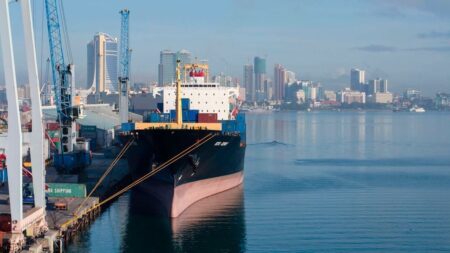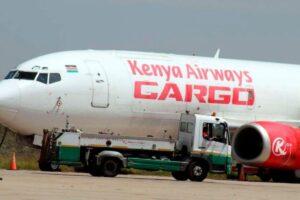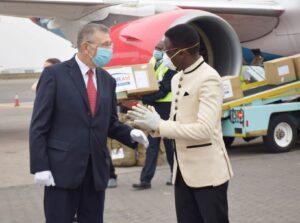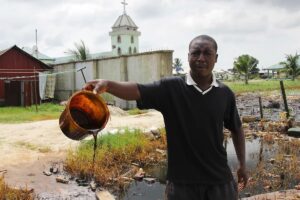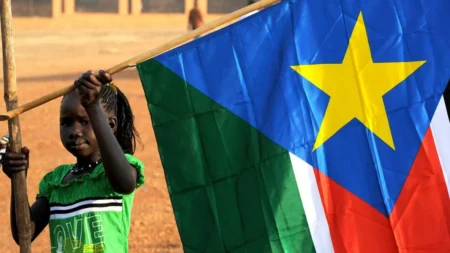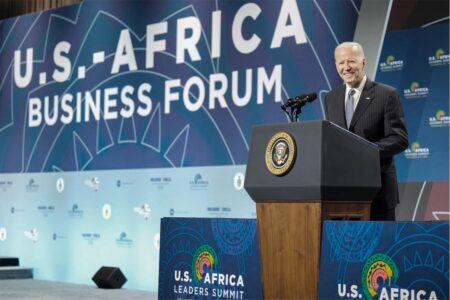- History beckons as push for Kenya’s Ruto to address US Congress gathers pace
- IMF’s Sub-Saharan Africa economic forecast shows 1.2 percent GDP growth
- The US Congress proposes extending Agoa to 2041, covering all African countries
- Millions at risk of famine as fuel tax row halts UN aid operations in South Sudan
- Empowering the Future: Humanity Protocol’s Dream Play Initiative
- TikTok Community Guidelines update aims to curb hate speech and misinformation
- Rwanda sees 39% surge in bank borrowers as Sacco and MFI loan uptake declines
- Kenya Ports Authority wins dispute case over cargo release
East Africa
- Tanzania has offered the Uganda National Oil Company (Unoc) to use the Dar es Salaam port for oil importation.
- This presents a strategic alternative amid the ongoing importation stalemate between Uganda and Kenya.
- The legal dispute between Uganda and Kenya over oil importation policies is pending before the East African Court of Justice (EACJ), with indications that Uganda may withdraw the case.
Tanzania has stepped forward with an enticing proposition that Kampala finds hard to ignore, especially regarding the ongoing deadlock in Nairobi-Kampala oil imports.
Tanzania has extended an offer to the Uganda National Oil Company (Unoc) to utilise the Dar es Salaam port for its fuel importation needs. This development comes as Uganda explores alternatives in response to Kenya’s steadfast position on Kampala’s oil importation demands.
Uganda’s grievance at the East African Court of Justice (EACJ) remains pending amid these unfolding events, casting a shadow of uncertainty over …
- In the three months to March 2023, Group’s total assets rose by 39.8 percent to close at $11.8 billion buoyed by DRC subsidiary TMB.
- Revenue increased by 26.9 percent to $267.4 million mainly driven by the non-funded income from customer transactions across the Group.
- This is the Group’s newest subsidiary in the Democratic Republic of Congo.
- It demonstrated the range and diversified income streams across the group’s businesses, adequate to cover the elevated operating and funding costs.
Regional lender KCB Group Plc posted $68.8 million in profit after tax for the first quarter 2023, a marginal drop attributable to acquisition and consolidation costs of its newest subsidiary, Trust Merchant Bank (TMB), in the Democratic Republic of Congo.
In the quarter, however, the Group recorded a strong balance sheet growth with total assets hitting $11.8 billion, with TMB contributing 14 percent to the Group’s total assets. The bank said this was …
- Insurance industry paid claims worth $400Mn in three months from October 2022 to December 2022 representing a 3percent increase compared to the third Quarter of 2022 that paid claims worth $391Mn.
- Latest statistics from the Insurance Regulatory Authority (IRA) indicate that the number of claims reported to the insurers were 2,040,600, a 12.6 percent increase compared to 1,811,141 claims reported in Q3,2022.
- General liability claims paid went up by 16.8 percent to 14,085 claims worth $42Mn from 12,055 claims paid worth $40Mn billion in the previous quarter. Non – Liability claims paid hit 1,714,723 claims worth $170Mn representing a 1.8 percent from 1,684,698 claims worth $160.31Mn reported in Q3 2022.
Insurance industry paid claims worth $400Mn in three months from October 2022 to December 2022 representing a 3 percent increase compared to the third Quarter of 2022 that paid claims worth $391Mn.
According to the Quarter 4 of 2022 claims …
However, it was not just the COVID-19 situation that devastated the region; poor agricultural production, locust infestation, floods and political tensions and elections have had a negative effect on the economy.
With the ongoing La Nina phenomenon, rains across the regions have been delayed raising fears of inflation as food …
Tourism is and has been the world’s largest industry up until the Covid-19 pandemic hit in December last year.
Countries both in the developed and developing world have seen ecotourism become the fastest growing sector within the tourism industry. With the potential it has, many governments have invested in the sector by ensuring that players are able to maximize output and productivity through rebates and tax relief which saw the sector grow in leaps and bounds.
However, the pandemic put a damper stifling the growth of the sector and in some cases rolling back gains made over the past few years.
In East Africa, ecotourism is a powerful economic force since it has largely made an impact in preventing environmental destruction when correctly managed. With the promotion of community development and empowerment, the sector has created employment in areas that were previously failing under what was commonly referred to as …
In this column called “The Indicator,” we will be taking an economic or financial statistic from East Africa and breaking it down into bite-sized nuggets of knowledge for investors.
This month’s indicator figure is 38,402,400.
38,402,400 of what?
Property rights are the basic foundation of capitalism, trade, and investment. There is land underneath each of our feet that is cultivated by industries such as agriculture, construction, banking and dozens more.
An estimated 38,402,400 or 22% of all people living in East African Community (EAC) countries feel insecure about their rights to their primary home or land. This is according to a recent study of 140 countries by Prindex, an organization focused on helping to increase property rights for citizens around the world.
What do you mean by insecure property rights?
Despite what laws or legislation is on the books of a country, insecurity around property rights of land …
The continuous spread of the COVID-19 pandemic across the world means that people’s ability to access safe and nutritious diets is at risk, further leading to an even wider global health crisis of the century.
Coronavirus has disrupted production, transportation, storage and sale of food and food items. Consequently, hunger and malnutrition levels have increased considerably especially because of the virus, even though many were already struggling with these issues prior to the pandemic.
According to a 2019 report, The State of Food Security and Nutrition in the World, over the past three years, the number of those suffering world hunger has been growing, only reflecting levels that were recorded almost a decade ago.
Also Read: Desert locusts , if not contained pose a threat to EAC’s food security; FAO
The report concludes that: “Hunger is on the rise in almost all African sub–regions, making …
The East African Community (EAC) has spent twenty years of integration and admitted new members in the process. EAC Partner States signed the Protocol in November 2009, and it came into force on 1 July 2010. The common market is the first of its kind in Africa. The internal EAC market has about 146 million consumers.
This second offering, after the initial community collapsed in 1977 has worked to learn from the mistakes of the past community. However, as things change, the more they have remained the same.
There have been tensions between countries at different periods of time, some threatening the very core that set forth the community. Kenya has been at constant feud with Tanzania, Uganda has been also at loggerheads with Rwanda while Burundi has accused Rwanda of meddling in its affairs.
Overall trade disputes are now increasing in East Africa. Uganda’s trade …
Of the many brands and companies present in the European country of Slovak, ESET stands out rather brightly. The Slovak software company is known for its highly-reliable anti-virus technologies such as the NOD32, Smart Security or their smartphone security software. Founded in Bratislava decades ago, the company has been able to make in-roads in most parts of the world and now has a presence in Africa.
In January 2019, the Slovak Republic Ambassador to Kenya, Frantisek Dlhopolcek paid a courtesy visit to then Cabinet Secretary of the National Treasury, Henry Rotich where they signed an agreement on development cooperation between the two countries and promote trade and development.
With such an agreement, companies like ESET took advantage of the opportunities presented in the East African region to set base in Kenya. In the period of operation, ESET is looking at how it can capitalize on the changing cybersecurity needs of …

